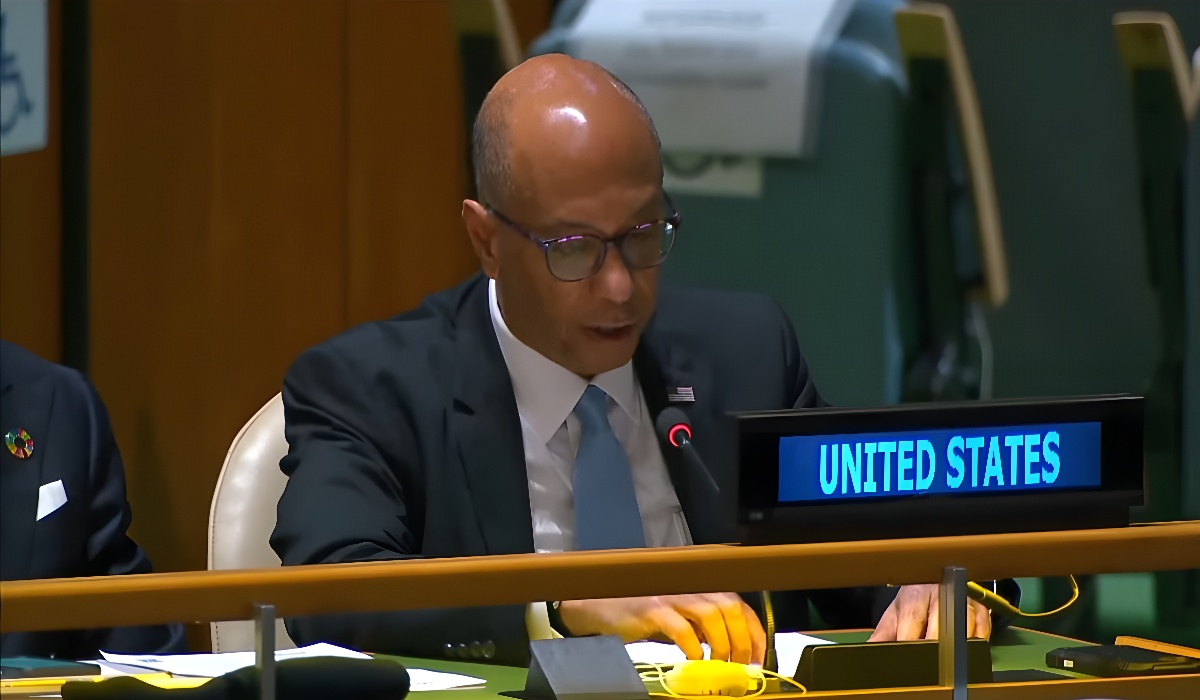Prioritizing the American People: A Critical Analysis of US Budget Allocation
Tupac Shakur’s immortal words, “They got money for wars, but can’t feed the poor,” resonate strongly with the ongoing debate over the allocation of the United States’ budget. This debate hinges on the undeniable misalignment between the nation’s military expenditures and its dedication to the welfare of its citizens. Foremost among the nation’s pressing concerns is poverty, a challenge that affects millions of Americans, curtailing their access to fundamental resources and opportunities for a better life. The solution to this issue, while not devoid of complexity, starts with a shift in budgetary priorities.
The allocation of resources plays a pivotal role in addressing the needs of the American people. Nevertheless, the nation’s budget allocation often appears skewed, with military spending taking precedence over critical domestic concerns. The United States’ military budget for 2023 alone exceeds one trillion dollars, a monumental sum that holds the potential to make substantial headway in addressing a significant portion of the nation’s most pressing problems.
Joel Berg, CEO of Hunger Free America, has calculated the cost of ending hunger in the US at a relatively modest $25 billion. The stark contrast between this figure and the extravagant military budget raises concerns about the nation’s priorities. Hunger remains a pressing issue in the United States, with millions of citizens unable to afford basic nutrition. With just a fraction of the military budget, the nation could make significant strides in ending hunger, improving the lives of countless Americans. Poverty and hunger, even in one of the world’s wealthiest nations, remain persistent problems. With a more balanced budget that places greater emphasis on the welfare of its citizens, the United States could effect remarkable improvements in living conditions and potentially eradicate these pressing issues.
The Department of Housing and Urban Development (HUD) reported approximately 582,000 Americans experiencing homelessness in 2022. This is a stark increase of around 2,000 people from 2020, indicating a growing crisis. Homelessness is not only a national disgrace but also a humanitarian issue that deserves more attention and resources. The nation’s commitment to addressing homelessness should be on par with its military expenditure. This growing crisis demands both attention and resources. Homelessness is not only a national disgrace but also a humanitarian issue that necessitates substantial funding for effective mitigation.
In the 2022 fiscal year, 41.2 million people in 21.6 million households received monthly SNAP benefits, which stands for the Supplemental Nutrition Assistance Program (Food Stamps). SNAP is a federal program designed to assist low-income individuals and families in purchasing nutritious food. While SNAP plays a crucial role in providing assistance to those in need, it is imperative to consider why such a vast number of Americans require this support in the first place. The United States should strive to create an environment where fewer people are reliant on such programs, focusing on sustainable solutions to reduce poverty and hunger.
In Ukraine, the US sent $400 million in military equipment in addition to $60 million for economic and humanitarian aid, totaling more than $60 billion in support. This assistance is commendable, but it should also serve as a reminder that resources and funds are available for humanitarian causes abroad when there is a vested interest in the American government. It is human nature to want to help other countries by providing aid; however, it is vital to ask why the same level of instant financial commitment is not directed towards domestic issues.
The significant scale of military aid is noteworthy, including an annual allocation of approximately $10 billion to Israel. The United States consistently provides arms to various nations around the globe, and the recent request from the Biden administration for Congress to allocate an additional hundred billion dollars for arms to Israel and Ukraine, with a simple stroke of the pen, underscores the stark contrast in financial priorities. It is a stark reminder that while America readily finances wars, it often takes decades to address the consistent provision of essential sustenance to its citizens. This disparity is further compounded by the absence of a comprehensive healthcare system that includes all members of society. These multifaceted issues emphasize the critical need to reassess budgetary allocations and shift the focus to addressing core domestic concerns, while recognizing that, in a nation endowed with abundant resources, the well-being of the American people and their access to healthcare should be as prominent as any international endeavor.
To address these imbalances and rekindle a focus on the American people, several steps can be taken: A comprehensive review of the military budget is imperative to identify areas of excess that can be redirected to address pressing domestic needs. While national defense is indisputably crucial, achieving an equitable balance is essential.
Funds saved from a more balanced military budget can be reinvested in programs aimed at tackling poverty, providing affordable housing, and addressing other critical domestic issues. These programs possess the potential to bring about lasting improvements in the lives of the American people.
In addition to providing immediate relief, the country must commit to implementing long-term strategies to reduce poverty and homelessness. This includes improving access to education and job opportunities, enabling individuals and families to break free from the cycle of poverty.
The government should ensure that the allocation of funds remains transparent, with the public fully informed about where their tax dollars are being expended. Transparency fosters accountability and encourages responsible budget management.
The lyrics of Tupac Shakur and the insights of experts like Joel Berg underscore a fundamental truth: the United States’ budget allocation often prioritizes military spending over the welfare of its citizens. While a strong national defense is undeniably vital, it is equally imperative to address pressing issues such as poverty and homelessness. By rebalancing the budget and redirecting resources toward these domestic needs, the United States can take a significant step toward ensuring that its citizens receive the support and care they deserve. This is not just a matter of morality; it is about redefining what it means to prioritize the American people while tackling the urgent issue of poverty in one of the world’s wealthiest nations.









